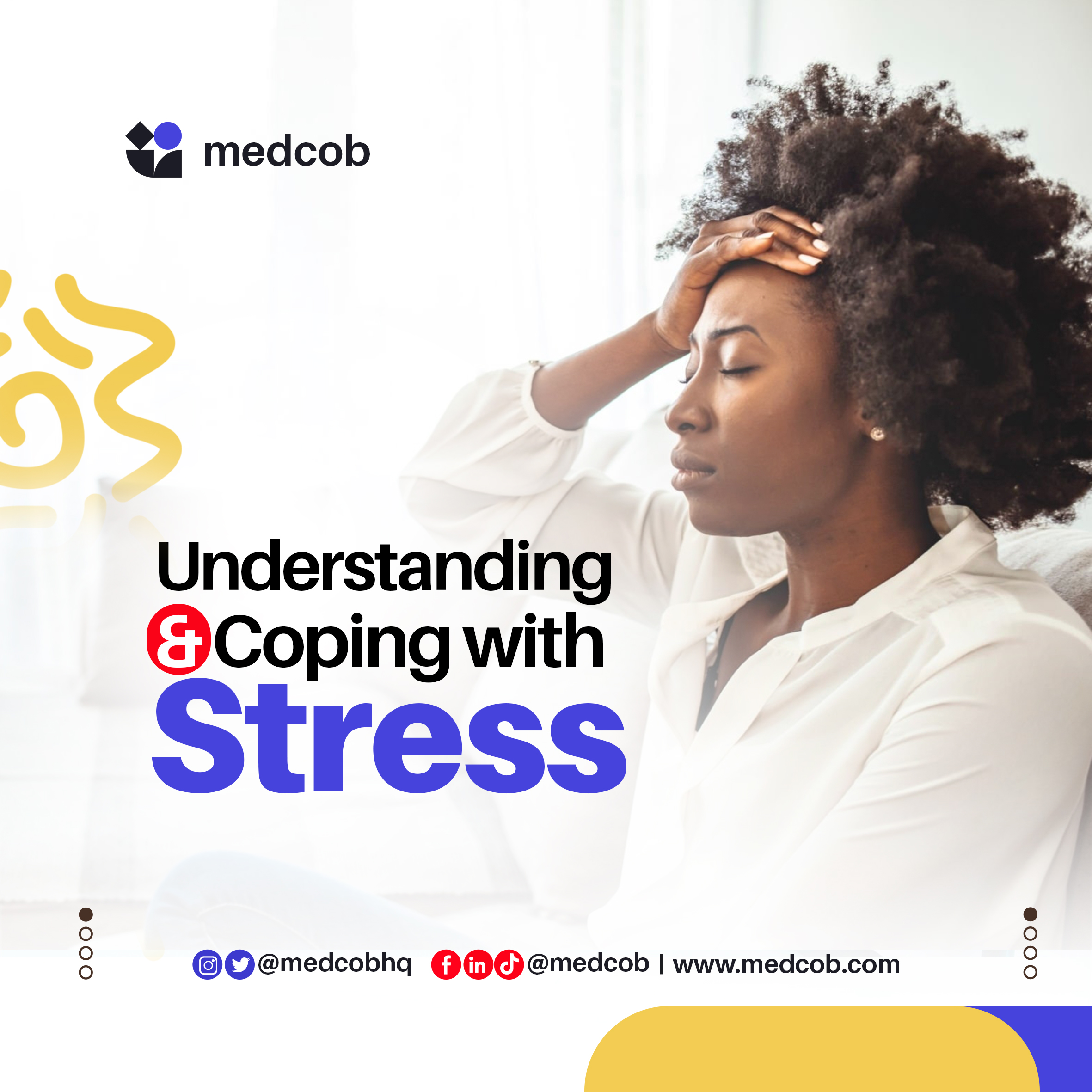
Whether it swoops down on you as exhaustion or settles in your chest as an easily agitated heart or relentlessly thumps in your head or trickles down your back as sweat or shakes you till you feel you are incapable of handling your to-dos, it is what it is—stress. And if stress remains unbridled, it can wreck you physically, mentally, and socially.
To mark the 2022 World mental health day, this article explores stress and highlights practical ways one can cope with it.
What is stress?
Stress is the body's response to pressure. It can be triggered by events or thoughts that make you feel frustrated, angry, or nervous.
When the body is put under undue pressure, it responds by flooding the system with certain chemicals that work to prepare it to tackle the challenge as fast as possible. These chemicals trigger some of the physical reactions we have come to associate with stress: increased blood pressure, heightened muscle preparedness, sweating, and alertness.
Causes of stress
The causes of stress are as multifaceted as the symptoms they induce. However, some of the common causes of stress are: unemployment, bereavement, natural and man-made disasters, dysfunctional families, abuse, financial responsibilities, parenting, deadlines, failure, relationships, marriage and divorce, examinations, unrealistic goals, the influx of bad news from mass and social media, etc.
It is nonetheless imperative to note that due to differences in personality, genetic makeup, and social exposure, people may react differently to stress. In fact, what constitutes stress for one person may not for another.
Symptoms of stress
The physical effects of stress include sweating, muscle cramps, chest or back pain, fainting, headaches, nervous twitches, pins, and needles sensations.
Stress also reflects in emotional reactions such as; impaired concentration, anger, irritability, fatigue, burnout, forgetfulness, restlessness, sadness, etc.
Stress and your health
Stress can wreak havoc on your emotional as well as physical health. It narrows your ability to think clearly, function effectively, and enjoy life. Unchecked stress can contribute to many health problems such as depression, anxiety, high blood pressure, heart disease, obesity, and diabetes.
How to cope with stress
Stressors will never truly go away, but you can reduce the effect they have on you by building certain habits:
1.)Exercise: when you exercise the brain releases chemicals known as endorphins which elevate the mood. You can start with 10 minutes of exercise every day and gradually work your way up.
2.)Take a break when necessary: if you can, take a break from all the noise and bustle. Turn off your gadgets, go somewhere quiet, and do something that makes you happy.
3.) Deep breathing and meditation: deep breathing exercises and meditation can slow your heart rate and promote relaxation. You can find how-to videos on YouTube.
4.) Eat well and drink enough water: a hungry man is indeed angry. But a healthful, balanced diet helps maintain the immune system at times of stress.
5.) Talk: Don't bottle it all up. "A problem shared," they say, "is half-solved." Talk to friends, to family members, to an empathic colleague at work. These people may not have the perfect solutions or they may have no solution at all, but talking can cheer you up considerably and help you put things in perspective. You may also consider talking to a therapist.
6.) Time and budget management: Set aside time to plan tasks and allocate a realistic time frame to complete them so that they don't pile up. Plan for leisures. Budget your income adequately. There are now apps that can help you do this.
7.) Think positive, be positive: This may sound cliché but adopting a positive approach to life makes living easier. Practice gratitude and when things go wrong, think of it as an opportunity to be better or seek a good that lightens the burden.
8.) Pray: Studies have shown that prayer can reduce stress to a large extent. If you are religious, you may want to tap into this.
9.) Take a break from social media and the news: Once in a while take a break from social media and breathe well. Remind yourself not to judge yourself by the unrealistic standards that are often out there and commit to consistent growth. Also, being up to date is important, but if all that news is stressing you, then you might want to regulate how much you ingest.
10.) Learn to say no: To yourself and to others. Don't try to please everyone. Don't try to do everything or be everything at once. Grab all, lose all. Understand yourself and bite only what you can chew, no matter how tempting it is to gulp the whole thing down.
11.) Automate or delegate tasks: If it's something the computer can do for you, why not? And if the task can be delegated, why not?
12.) Sleep well: Adequate sleep cannot be overemphasized. Don't let work or the desire to be productive rob you of sleep. The effect is counterproductive. The ideal for adults is 7-9 hours of sleep per day.
The world is rife with stressors. All the same, this world is for us to conquer and not the other way around. We hope these 12 points help you confront stress every day like a victor.
Happy world mental health day!